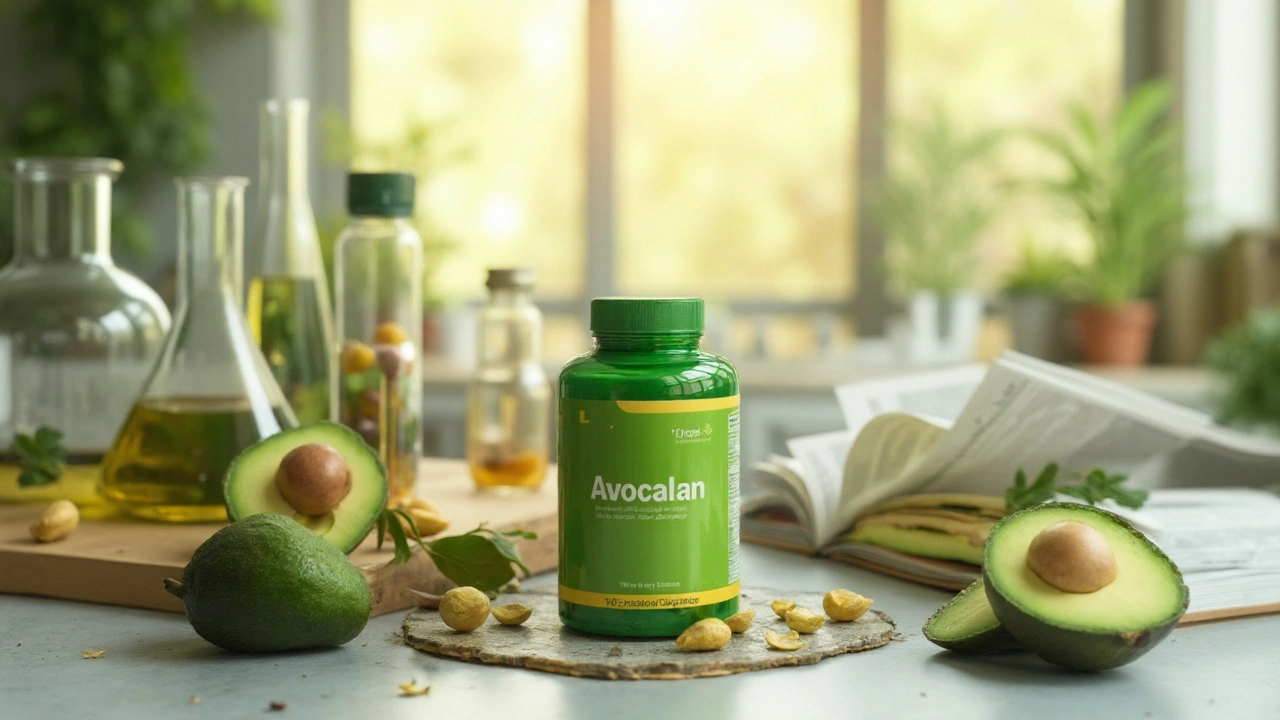Avocado Supplements: What They Are and Why They Matter
Ever wonder why avocado shows up in so many health blogs? The fruit isn’t just tasty – it’s packed with healthy fats, vitamins, and antioxidants. When those nutrients are concentrated into a pill or oil capsule, you get an avocado supplement that can be easier to add to your routine.
People use avocado supplements for a few main reasons: supporting heart health, helping the skin stay smooth, and giving a natural energy boost. If you’re already eating avocado, the supplement might seem redundant, but many folks find the dose in a capsule stronger than what a typical serving of fruit provides.
Key Benefits You Can Expect
First up, the heart. Avocado is rich in monounsaturated fats, especially oleic acid. Those fats help keep cholesterol levels in check, which can lower the risk of heart disease. Studies show that taking avocado oil capsules can reduce LDL (“bad”) cholesterol while raising HDL (“good”) cholesterol.
Second, the skin. Avocado contains vitamin E and carotenoids that fight free‑radical damage. Those antioxidants protect skin cells from aging and keep moisture levels up. Users often report softer skin and fewer breakouts after a few weeks of consistent use.
Third, the joints. The anti‑inflammatory properties of the avocado’s phytosterols may ease joint discomfort. If you have mild arthritis or just feel stiff after a long day, a daily avocado supplement could bring some relief.
How to Take Avocado Supplements Safely
Dosage matters. Most manufacturers suggest 500 mg to 1 g of avocado oil per day, usually split into two capsules. Start with the lower end, especially if you’re new to supplementing fats. Watch how your body reacts – if you feel overly full or notice digestive upset, cut the dose in half.
Timing is simple: take the capsules with a meal that contains some fat. The extra fat helps your body absorb the nutrients better. If you’re on a low‑fat diet, you might want to add a splash of olive oil or a handful of nuts to the same meal.
Safety tip: avocado supplements are generally safe, but they do contain calories from fat. People watching their weight should count those calories into their daily budget. Also, if you’re on blood‑thinning medication, talk to a doctor first – the vitamin K in avocado can affect clotting.
When you shop, look for brands that list “cold‑pressed avocado oil” and have third‑party testing. A clear label, a reputable manufacturer, and a seal from an independent lab are good signs you’re getting a pure product without hidden fillers.
Bottom line: avocado supplements can be a handy way to tap into the fruit’s heart‑friendly fats, skin‑loving antioxidants, and joint‑supporting compounds. Start with a modest dose, pair it with a balanced meal, and keep an eye on how you feel. If you notice positive changes, you’ve likely found a simple addition to your health routine.
Avocado Dietary Supplements: Real Science, Real Benefits for Your Health
Explore the hard science behind avocado dietary supplements, their surprising health benefits, and expert tips for making them a part of your wellness routine.
- 20
- Read More
